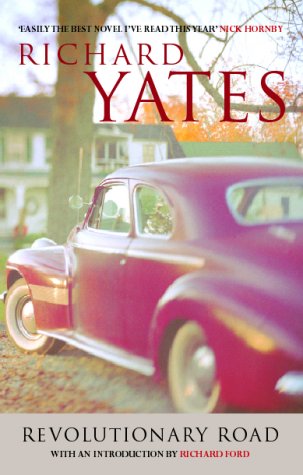How to respond to Jonathan Safran Foer's latest book,
Eating Animals? Let us examine the choices:
* BOREDOM: This might be your initial response. After all, the last decade has seen the rise of a new -- or maybe renewed -- literary subgenre concerned with the ethics and sustainability of how we eat. Eric Schlosser got the ball rolling with 2001's Fast Food Nation; the intervening decade has brought us Matthew Scully's Dominion and David Foster Wallace's Consider the Lobster, among other contributions. Mark Bittman once advised us How To Cook Everything, but more recently has decided that Food Matters -- and that maybe we shouldn't be eating so much meat.
The masterpiece of this movement, of course, is Michael Pollan's
The Omnivore's Dilemma, which took its readers on a tour of 21st century "factory farming," with steps along the way for moral contemplation of meat eating, hunting and Whole Foods shopping. Pollan's tome -- and a couple of spinoff books -- was a smash hit, finding its way to the bottom of thousands of reusable cloth bags toted by enviro-foodies to farmers markets across the land.
So what's new for Foer to say? Not much, honestly. His reportage here covers much of the same ground already trod by Pollan. Factory farming -- we're told
again -- is a dirty, cruel process that is awful to behold is probably making us sick. If you've read Pollan, you're likely to find yourself in the grip of a second possible reaction:
* IRRITATION: What Foer does offer is attitude and sanctimony. Where Pollan is professorial, using narrative to nudge his reader toward a conclusion, Foer comes across a smart, profane, angry undergrad -- one you might try to avoid on the quad when he starts hectoring passerby to stop and watch his
Meet Your Meat video. He might be in command of the facts, but
damn he's annoying.
It wouldn't be fair to compare Foer to Pollan so much, except that Pollan is one of the targets here. In Omnivore, Pollan concludes he's not willing to give up meat -- but he decides to seek it from alternative sources (local ranchers, hunters) who use sustainable practices and keep animal cruelty at a minimum. This draws Foer's moral ire, declaring that Pollan is among those who "never, absolutely never, emphasize that virtually all of the time one's choice is between cruelty and ecological destruction, and ceasing to eat animals."
There's only one problem with this critique: Foer ends the book as a committed vegetarian -- as he has to, really, once he decides he cannot justify any amount of animal suffering in the name of a good meal. Despite this decision, however, he vows that he can support efforts to create sustainable, minimally cruel family farms.
"The meat industry has tried to paint people who take this two-fold stance as absolutist vegetarians hiding a radicalized agenda," Foer writes. "But ranchers can be vegetarians, vegans can build slaughterhouses, and I can be a vegetarian who supports the best of animal agriculture."
We never really understand why Foer -- who finds any level of animal suffering to be unacceptable -- decides this approach is appropriate. But bizarrely, this conclusion is not that far from Pollan's own. The distinction, I suppose, is that Foer is really sensitive and tortured about the process. This is moral preening, and that is all it is.
This sanctimony -- replete with references to Martin Luther King Jr. and the Holocaust -- would make Eating Animals worth tossing in the trash bin at your nearest barbecue joint ... were it not for the third possible reaction to this book:
* GRUDGING ACCEPTANCE THAT FOER IS KINDA MAYBE RIGHT: Damnit, factory farming is gross. It fills our rivers and waterways with shit; it fills our air with climate-changing gases; it delivers meat filled with contaminants and antibiotics. And it is, by any rational standard, cruel: chickens have their beaks cut off; pigs live in their own waste; cattle are dismembered while alive and conscious. These are facts that should give one pause -- if not for the sake of the animals, then for the sake of our own health.
Foer, of course, wants more than a pause. He wants a halt. The environmental factors are important to his case, but it's clear he considers the moral argument most persuasive.
"Think about it," he asks. "Do you eat chicken because you are familiar with the scientific literature on them and have decided their suffering doesn't matter, or do you do it because it tastes good?"
My first, glib answer: A little bit of both.
Less glibly, what I mean to say is that I do not grant (say) chickens the same moral weight that I do a human being. Foer presents science here that chickens -- among other animals -- share human capacities for pain, fear, reason and other cognitive processes. I don't doubt that he's right. But still: I do not grant a chicken the same moral weight as a human. I just know there's a difference between us and them. (If chickens one day rule the earth, I may regret these words.)
Until then, though, I find the example of nature too compelling. Animals eat other animals. All the time.
Foer doesn't buy this argument. "The entirety of human society and moral progress represents an explicit transcendence of what's 'natural,'" he says. And he's right. But what is interesting to me about this is that environmentalists -- and, let's face it, there's a signficant overlap between them and the vegetarian community -- make this argument in no other context. Dams are unpardonable usurpations of Mother Nature's work; so are power plants. Environmentalists usually call on us to disturb nature as little as possible, to acclimate our processes to the earth's natural rhythms. Then dinner time comes.
So where does this leave us? Probably -- if you've ever given thought to your meals -- at the same place you started.
My family already buys our meat from a halal butcher who, in turn, buys his cattle and chickens directly from nearby Amish farmers. We already have escaped the factory farm system, putting our money toward something as sustainable and minimally cruel as we can achieve while still eating meat.
But we probably don't need to eat meat as often as we do. Tonight I prepared a vegetarian stew from the
Sundays At Moosewood cookbook. It was delicious, stuffed full of veggies and spices, and any concerns I had about missing meat were quickly overcome by the fact that it was super tasty.
This, of course, is what Foer misses. In his quest for moral perfection, he forgets that a good meal -- even a simple meal, even a vegetarian meal -- can bring you pleasure. Pollan never forgets that. I know whose manifesto I find more appealing.








